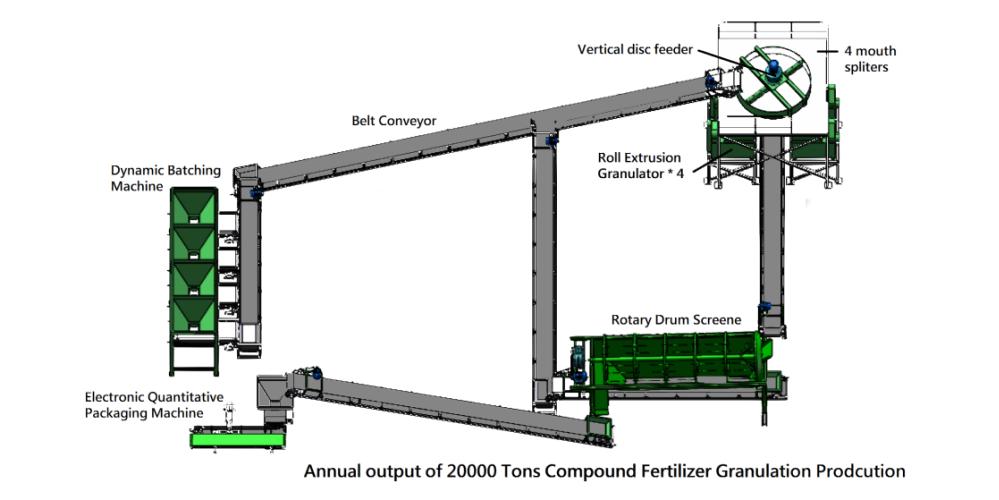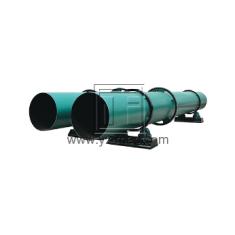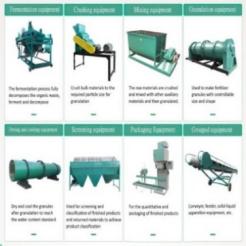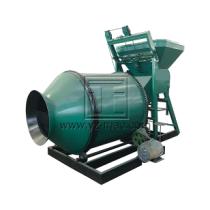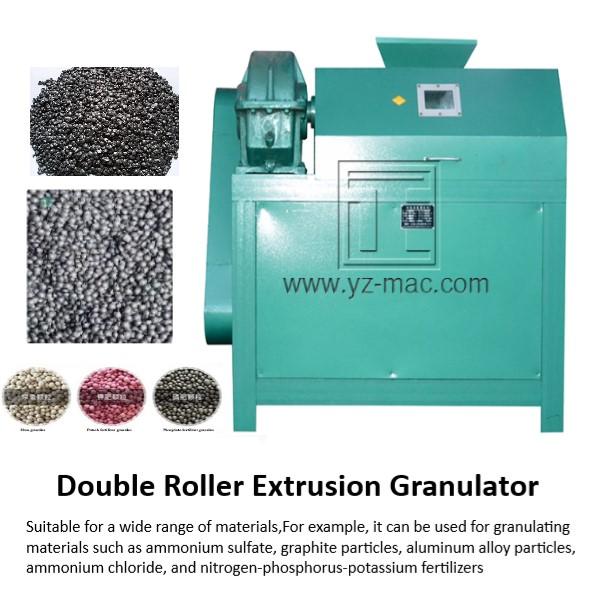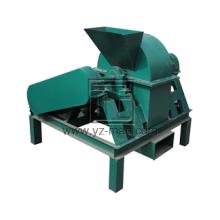Complete production line of compound fertilizer
A complete production line for livestock manure fertilizer involves several processes that transform animal waste into a high-quality organic fertilizer. The specific processes involved may vary depending on the type of animal waste being used, but some of the common processes include:
1.Raw Material Handling: The first step in livestock manure fertilizer production is to handle the raw materials that will be used to make the fertilizer. This includes collecting and sorting animal manure from livestock such as cows, pigs, and chickens.
2.Fermentation: The animal waste is then processed through a fermentation process, which involves creating an environment that allows for the breakdown of organic matter by microorganisms. This process converts the animal waste into a nutrient-rich compost.
3.Crushing and Screening: The compost is then crushed and screened to ensure uniformity of the mixture and to remove any unwanted materials.
4.Granulation: The compost is then formed into granules using a granulation machine. Granulation is important to ensure that the fertilizer is easy to handle and apply, and that it releases its nutrients slowly over time.
5.Drying: The newly formed granules are then dried to remove any moisture that may have been introduced during the granulation process. This is important to ensure that the granules do not clump together or degrade during storage.
6.Cooling: The dried granules are then cooled to ensure that they are at a stable temperature before they are packaged and shipped.
7.Packaging: The final step in livestock manure fertilizer production is to package the granules into bags or other containers, ready for distribution and sale.
An important consideration in livestock manure fertilizer production is the potential for pathogens and contaminants in the animal waste. To ensure that the final product is safe to use, it is important to implement appropriate sanitation and quality control measures throughout the production process.
By converting animal waste into a valuable fertilizer product, a complete production line for livestock manure fertilizer can help reduce waste and promote sustainable agriculture practices while providing a high-quality and effective organic fertilizer for crops.


